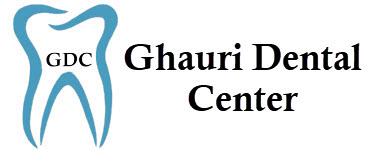Extractions

Tooth Extraction
A tooth extraction can cause anxiety. Tooth extractions are extremely common in reality. An extraction is the removal of a tooth from the jawbone. Tooth extraction is usually necessary when a tooth has suffered too much damage to be restored. Other reasons for tooth removal may include decay, infection, or crowding.
Dentists are often the ones who perform tooth extractions, but oral surgeons are occasionally required. You don’t need to worry. In spite of the fact that it is different from a filling, it is usually a short procedure and is probably not as painful as you might expect.
How does it work?
In order to save a damaged tooth, your dentist may use root canal therapy, crowns, or fillings. If the damage is too severe, the tooth must be extracted. It is only a dentist or expert who can determine whether a tooth needs to be pulled. The first session will consist of a thorough examination and evaluation of your mouth and teeth, as well as a recommendation for the best course of action. Tooth extractions can frequently be avoided with regular dental checkups and good oral hygiene.

What you need to know?
Appointments
- Usually 1 or 2 appointments
- Your dentist will examine your teeth during your first consultation. If possible, he/she will extract the teeth right away or schedule an appointment for the next day.
- You will have your tooth or teeth extracted at the second visit.
- Any problems or issues with your extraction may require further appointments.
Quick tip
- The removal of wisdom teeth may result in swelling and discomfort. It’s usually a good idea to take a few days off work to rest. It’s also normal to experience bleeding or oozing after the extraction. In order to control the bleeding, your dentist will provide you with gauze. For around 20 to 30 minutes, bite down gently with gentle pressure.
The length of time it takes
- It usually takes around 30 minutes to complete the consultation
- It usually takes between 30 and 60 minutes to complete the extraction.
Before your appointment
- You will not need to prepare for the consultation, but you should know your dental and medical histories.
In order to prepare for surgery under intravenous or IV sedation, you should: - Pre-operative medications should be taken as prescribed
- Make sure you are accompanied and driven to your appointment by someone you trust
- Your dentist will give you instructions on fasting before sedation
- Dress warmly and comfortably with loose sleeves.
You may be asked about
- Your dental and medical history
- Medications you are currently taking
- Your normal oral care routine at home.
After your appointment
If you have had any teeth extracted:
- Use ice packs as much as possible to prevent swelling during the first 48 hours
- Do not rinse your mouth on the day of surgery as it will cause bleeding.
- Do not smoke for as long as possible after surgery
- Be careful with hot food and drinks
- Eat a soft food diet
- On the day after removal, rinse three times a day after meals with warm, salty water.
- Use Savacol mouthwash the following day, morning and night.
- Be accompanied home.
- Rest for 2 to 4 hours following surgery.
